Wednesday, June 20, 2007
Google Press Release Analyzer
Google offers you an archive of their press releases from 1999 to 2007. A lot has happened in those 8 years, and you can analyze some of the changes – or to be more precise, the changes Google decided to publicly communicate – by comparing word counts for each year. I wrote a little tool to automate this, and below you can see some samples.
Technical notes: this tool counts the occurrences of a specific word among all press releases of a year and compares it to the overall number of words that year, to then zoom in for a clearer view. The recurring Google’s Zeitgeist releases have been excluded. Also, the search finds word parts as well as full words (and ignores case), so a search for “deja” would count “DejaNews” as well. Some press releases included general information on Google at the end of the release, which was included here. Many blog posts by Google are press-release-like, but also were not included here.
Occurrences of “GoogleScout“
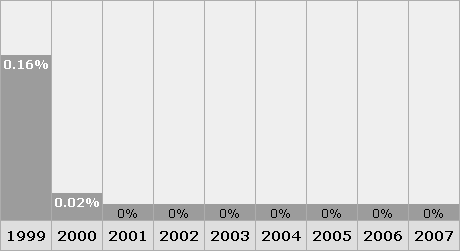
Occurrences of “Environment“

Occurrences of “Revenue“
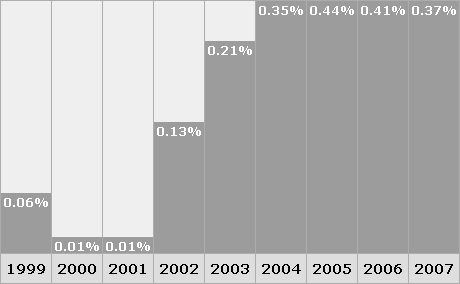
As with the other charts, this can mean many things (and mixtures of them): revenue is up; revenue is more focused on; revenue is better communicated; and more. (Note that you can’t necessarily directly compare two different charts various heights, e.g. “revenue” vs “environment,” as some words may be more frequently used in general speech than others – what you can compare between different charts though is the overall direction a word takes, that is, if it’s decreasing or increasing over time.)
Occurrences of “Search“

This table is scaled; its zoom factor is much smaller than all other tables on this page.
Occurrences of “Censor“
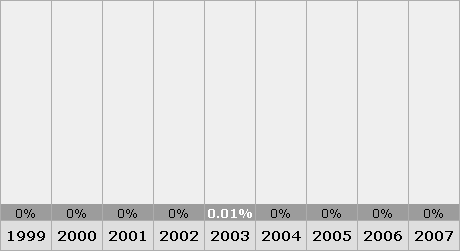
Does this mean Google doesn’t censor? No, it mostly means Google in their press releases never really talked about the subject of censorship (or rather, the word “censorship”), nor explicitly mentioned anti-censorship tools. (They did talk about their own censorship in 2006 in a blog post, though they called it “filtering” instead; in another blog post in 2004 they did use the word “censorship,” but only to emphasize that they’re the only company not censoring web pages in results.)
Occurrences of “Eric Schmidt“
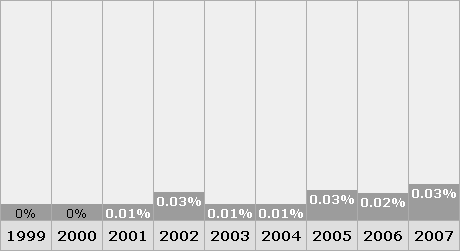
Occurrences of “Larry Page“
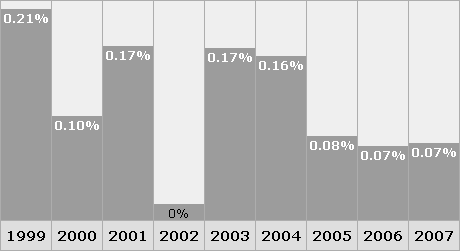
Occurrences of “Sergey Brin“
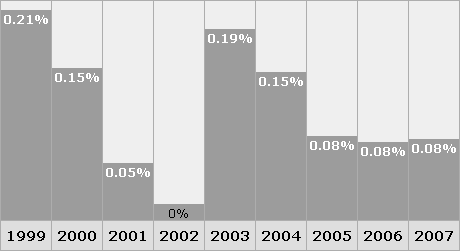
Occurrences of “Evil“
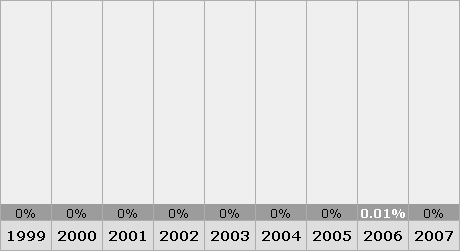
This chart surprised me, as I expected much more occurrences of “don’t be evil” (at least in the early years).
Occurrences of “Blog“

Occurrences of “Universal Search“
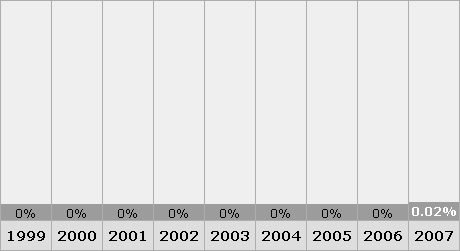
>> More posts
Advertisement
This site unofficially covers Google™ and more with some rights reserved. Join our forum!
